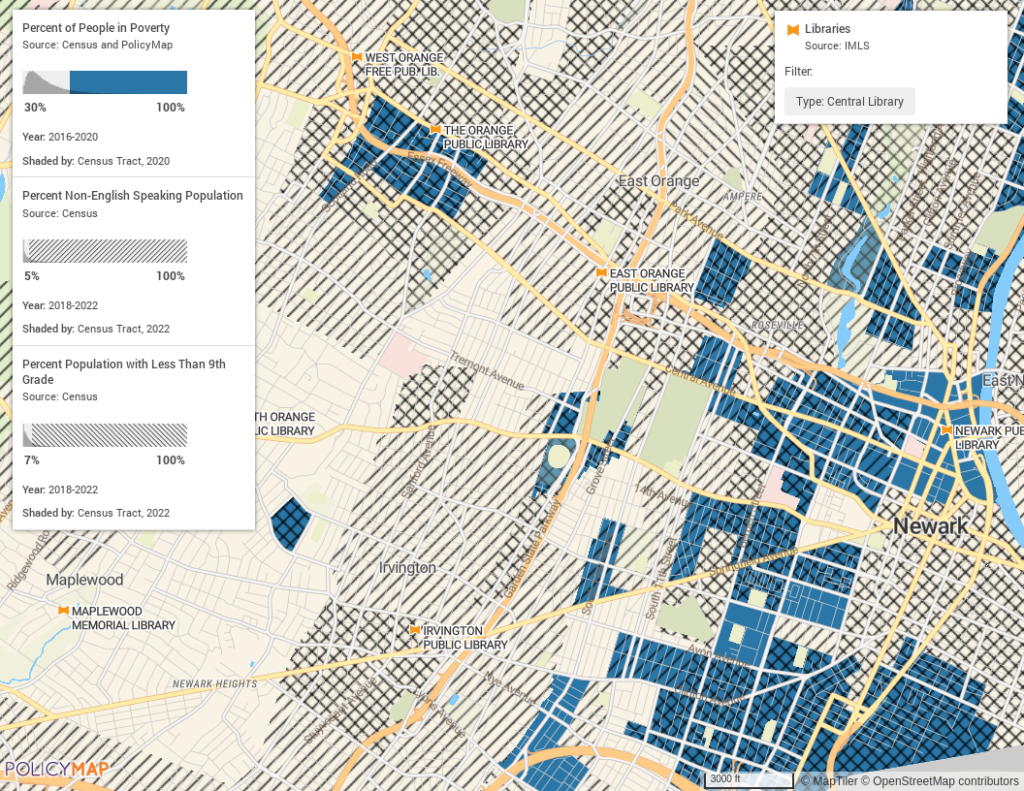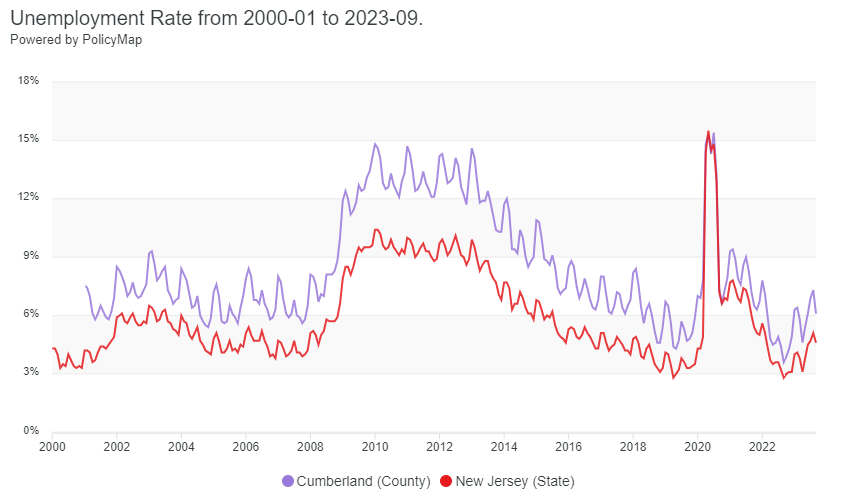Grant Success using PolicyMap for Applications & Strategic Allocation

Navigating the Grant Application and Funding Landscape
In the competitive realm of grant writing, libraries and non-profit organizations face the challenge of crafting applications that stand out. PolicyMap emerges as a transformative resource in this process, offering a robust suite of data, mapping, and visualization tools that can significantly enhance grant proposals and increase the chances of securing vital funding.
The United States provides a diverse array of grant opportunities for public libraries, covering operational support, program funding, technological upgrades, and facility renovations. These grants, sourced from federal agencies, state library organizations, foundations, and private sectors, necessitate grantees meeting specific goals and requirements. Notably, the Institute of Museum and Library Services (IMLS) stands out with its Grants to States program, injecting around $180 million annually into library services nationwide. This federal commitment underscores the importance of enhancing public library offerings. The Library Services and Technology Act (LSTA) also channels funds for various purposes, including advancing entrepreneurship, education, employment, STEM activities, and business development assistance programs. State libraries are crucial in distributing IMLS funds to local libraries based on strategic plans. In conjunction with these resources, public libraries in the United States receive most of their revenue from local government sources.
The PolicyMap Advantage for Grant Seekers
- Comprehensive Data Access: PolicyMap’s extensive database encompasses demographic details, economic trends, health statistics, and housing information, allowing libraries to substantiate the necessity and project the impact of their initiatives with solid evidence.
- Customizable Data Sets: By tailoring data to align with specific grant requirements, PolicyMap ensures that every application directly addresses the grant’s objectives, enhancing relevance and appeal.
- Showcasing Community Impact: Libraries can leverage PolicyMap to illustrate the potential benefits of their projects on local communities, using socioeconomic and housing data to depict the transformative impact envisioned.
- Credibility and Professionalism: Presenting data through PolicyMap enhances the perceived preparedness and capability of the applying organization and elevates the overall professionalism of the application.
- Comparative Analysis: The tool facilitates comparisons between targeted areas and broader regions, illustrating unique needs or the efficacy of proposed solutions, a critical aspect in grant applications.
PolicyMap’s online platform streamlines the collaborative process for grant writing teams, enabling efficient, coordinated efforts across multiple stakeholders. By converting complex datasets into clear, engaging maps and charts, PolicyMap empowers libraries to effectively communicate their narratives, showcasing the urgent need for their services visually compellingly.
A GRANT SUCCESS STORY:
Jennifer Nelson and the NJ State Library
Jennifer Nelson, the State Librarian at the New Jersey State Library, utilized PolicyMap extensively to identify communities with specific needs and allocate grant funds accordingly.

PolicyMap has been an invaluable resource for us at the New Jersey State Library. By leveraging its powerful data analytics and mapping capabilities, we were able to pinpoint communities in our state that were facing significant challenges, such as high unemployment rates, limited English proficiency, and low educational attainment. This targeted approach allowed us to allocate our grant funds more effectively, ensuring that resources were directed towards those who needed them the most.
– Jennifer Nelson, State Librarian at the New Jersey State Library
This nuanced understanding enabled the New Jersey State Library team to identify nearly 200 out of 600 communities in New Jersey that were most in need, ensuring that the grant application could precisely target library communities. Nelson emphasizes the importance of data-driven decision-making in ensuring equitable resource distribution and addressing disparities in access to library services across different communities.


The story of using PolicyMap at the New Jersey State Library is a testament to how data-driven tools can transform the landscape of grant application and community development. By providing detailed maps and data on community needs, PolicyMap has proven to be an invaluable asset in securing funding and ensuring that it reaches those who need it most, setting a precedent for future initiatives aiming to make a difference in communities across the state.
The Usefulness of PolicyMap for Grant Awardees
For awardees like the NJ State Library, PolicyMap becomes an indispensable asset in project management, resource allocation, and implementation. The tool facilitates establishing baseline data and identifies community needs, aiding in program planning and development. Additionally, it enables effective monitoring and evaluation, supports stakeholder reporting, enhances public engagement, and guides strategic future planning.
As a strategic tool for grant writers in the library and non-profit sectors, PolicyMap offers a comprehensive data repository and mapping tool that strengthens grant applications, underscores organizational commitment, and highlights the potential for significant community impact. By transforming data into compelling stories and actionable insights, PolicyMap empowers organizations to secure critical funding necessary for serving their communities to the fullest extent.
Request A Demo
Interested in using PolicyMap when writing your next grant application? Schedule a walk-through of the application and our data with an expert on the PolicyMap team by filling in the form below.
References: